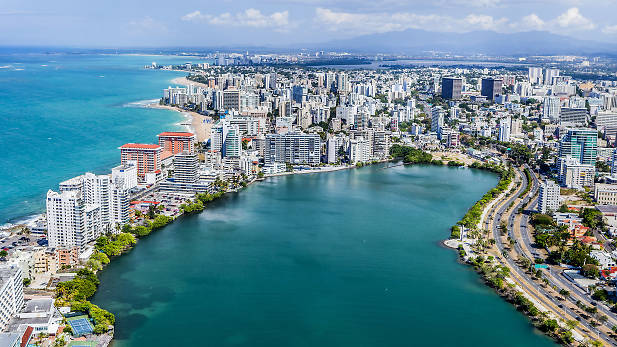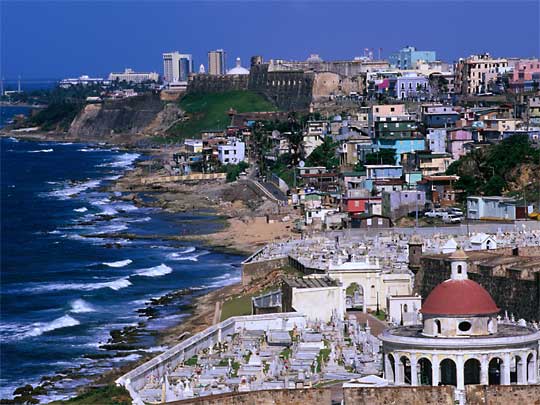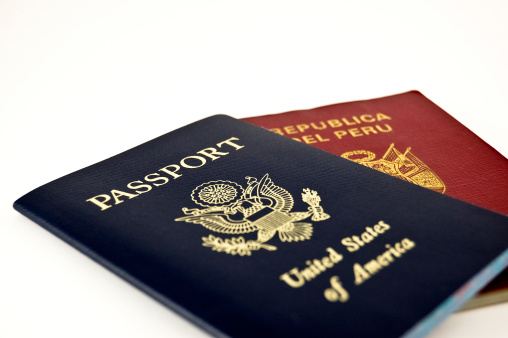Who is a Resident of Puerto Rico for US Tax Purposes
If you are considering moving you and a business to Puerto Rico for the tax benefits, be aware that the definition of “resident of Puerto Rico” is a complex one. The US IRS has created special forms and definitions as to who is and who is not a resident of Puerto Rico for US tax purposes.
If you’re reading this and saying to yourself, “what tax benefits is he talking about?” Let me begin by outlining them here.
First, you can move a business, or part of a business, from the United States to the US territory of Puerto Rico. So long as that business employees at least 5 residents of Puerto Rico, it will pay only 4% in corporate income tax. For more on how to get this 4% rate on Puerto Rico sourced income guaranteed for 20 years, see: Blood in the Streets Offshore Tax Planning.
Second, you can move yourself out of the United States and into Puerto Rico. By doing this you will be exempt from US and Puerto Rico tax on capital gains. You will also pay zero tax on dividends from your Puerto Rico corporation. This zero percent tax rate on capital gains applies to assets acquired after you move to Puerto Rico. For more, please read my article titled How to Maximize the Tax Benefits of Puerto Rico.
Puerto Rico is the only country or territory that can cut your capital gains and dividends tax. When you move offshore, you still pay US tax on capital gains and dividends. The only tax savings for expat Americans is the Foreign Tax Credit. For more on this see: Puerto Rico Tax Deal vs Foreign Earned Income Exclusion.
Third, foreign persons can immigrate to the United States by starting businesses in Puerto Rico and get these same tax benefits. Both the EB-5 business investor visa and the E-2 treaty investor visa are available from Puerto Rico. For more, see: Coming to America Tax Free with the EB-5 Visa and Puerto Rico.
Now that you’re caught up, let’s talk about who is a resident of Puerto Rico for US tax purposes.
IRS Publications 1321 and 570 define a resident of Puerto Rico as someone who:
- Meets the presence test by spending at least 183 days a year in Puerto Rico or qualifying under one of the other tests,
- Does not have a tax home outside of Puerto Rico, and
- Does not have a closer connection to the United States or to a foreign country than to Puerto Rico.
The first of these criteria for being considered a resident of Puerto Rico for US tax purposes is known as the physical presence test. The easiest way to satisfy this test by spending at least 183 days a calendar year on the island.
If you can’t hit 183 days (for example, you are starting your residency in November), then you need to qualify for Puerto Rico residency using the 3 year test. You are a tax resident of Puerto Rico if you spend a minimum of 60 days in Puerto Rico during each tax year and at least 549 days over 3 consecutive years.
Once you establish residency in Puerto Rico, and break ties with the United States, there are other tests you can use to ensure you are classified as a tax resident of Puerto Rico in future years.
You can qualify as a resident of Puerto Rico if any of the following is true:
- You were present in the United States for no more than 90 days during the tax year.
- You had earned income in the United States of less than $3,000 and spent more days in Puerto Rico than you did in the United States during the tax year.
- Earned income is pay for personal services performed such as wages, salaries, or professional Fees. This amount does not include capital gains.
- You had no significant connection to the United States during the tax year.
Important Note: If you are moving to Puerto Rico from the United States, you must first qualify under the 183 day test or the 3 year test described above. Then, once residency is established, you can use these less restrictive tests.
Foreign Persons: If you are not a US resident or citizen, and are applying for an E-2 or EB-5 visa from Puerto Rico, you can use any of these tests to prove you are a tax resident of Puerto Rico. For example, so long as you are in the US less than 90 days of the year, it doesn’t matter how much time you spend in Puerto Rico.
The key to the Puerto Rico tax deal is to understand who is a tax resident of Puerto Rico. To determine who is a resident of Puerto Rico, we must consider what it means to be “present” in Puerto Rico and the United States.
You are considered to be present in the United States on any day that you are physically
in the US at any time during the day. So, if you make a quick trip to Miami to buy a new laptop, that is a day in the United States.
Connecting through a United States airport to a foreign country is usually not a day in the US. If you don’t leave the airport, you are not in the United States. If your flight is delayed, and you are in the airport for more than 24 hours, it will be counted as a day in America.
And, beginning this year (with tax year 2016), some days spent in a foreign country will be considered days in Puerto Rico for tax purposes. Under this new rule, you can count up to 30 days abroad as days in Puerto Rico. For more information, see IRS publication 570, page 4. Note that this 30 day bonus does not count for the 60 day rule when you are using the 3 year calculation described above.
You must also have more connections to Puerto Rico than the United States to qualify as a tax resident of Puerto Rico.You will be considered to have a closer connection to Puerto Rico than the United States if you have developed more contacts with the Puerto Rico and broken your ties to America.
The facts and circumstances around your move to Puerto Rico will be reviewed carefully if you’re spending a lot of time in the US, your wife and children are living in the US, etc. If you have significant tax free income in Puerto Rico, you should consider your US connections carefully. I expect audits on this issue to increase significantly in the coming years.
Ties to the US vs Puerto Rico for residency purposes include, but are not limited to:
- Where is your permanent residence – note that Puerto Rico’s Act 22 requires you to buy a home on the island and that this must become your permanent home.
- Where your spouse and children are living.
- Note that US states will also try to tax your Puerto Rico income if your spouse is living outside of Puerto Rico. For example, if your wife is living in California, that state will consider half of your income CA source income to him or her under its community property rules.
- The location of personal belongings, such as automobiles, furniture, clothing, and jewelry owned by you and your family.
- The social, political, cultural, professional, or religious organizations that you belong. You should be cutting relationships with the US and joining clubs in Puerto Rico.
- Where most of your banking activities take place. I suggest banking for a Puerto Rico company should be in Puerto Rico or offshore. We can open accounts in Switzerland elsewhere for Puerto Rico companies.
- Where you have a driver’s license and where you vote. Both of these should be in Puerto Rico.
- The location of charitable organizations to which you contribute.
- Where you list as your residency in official government and legal documents. For example, the address you list on contracts, loan applications, and government documents such as Form W8BEN or Form W9, Request for Taxpayer Identification Number and Certification.
In an audit, your connections to Puerto Rico will be compared to your connections with the United States and foreign countries. They will also review your bank statements, airline history, and credit / debit cards to determine how many days you spent in the United States vs Puerto Rico.
When structured carefully, incorporating and operating from Puerto Rico will cut your US tax rate from 40% to 4% overnight and eliminate tax on capital gains for assets purchased after you move to the island. The key to this tax plan is proving you are a resident of Puerto Rico. Remember that the burden of proof is on you.
EDITORS NOTE: On July 11, 2017, the government of Puerto Rico did away with the requirement to hire 5 employees to qualify for Act 20. You can now set up an Act 20 company with only 1 employee (you, the business owner). For more information, see: Puerto Rico Eliminates 5 Employee Requirement
I hope you have found this article on who is a resident of Puerto Rico for US tax purposes to be helpful. Please contact me at info@premieroffshore.com or call (619) 483-1708 for more information on how to qualify for the tax benefits offered by Puerto Rico.












Leave a Reply
Want to join the discussion?Feel free to contribute!